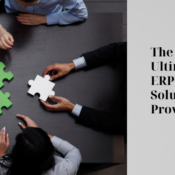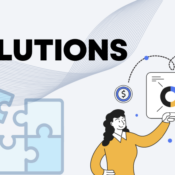Unlocking Business Potential: A Deep Dive into ERP System Modules
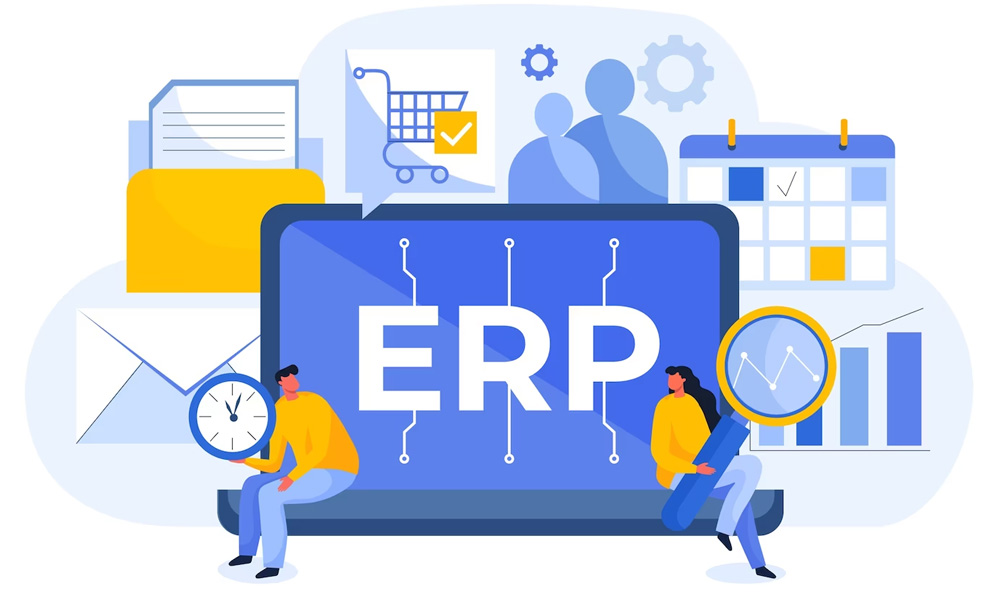
09/18/2023
/
Unlocking Business Potential: A Deep Dive into ERP System Modules
Running a business is not easy. You have to deal with various challenges every day. You have to manage your finances, inventory, production, sales, human resources, and customer service. You have to keep track of your performance and make smart decisions. How can you do all this without losing your sanity? The answer is ERP solutions.
ERP stands for Enterprise Resource Planning, and it is a software application that integrates all the aspects of your business into one system. ERP software helps you run your business more smoothly and successfully by automating tasks, eliminating errors, enhancing data quality, and facilitating decision-making.
In this blog, we will dive deep into the different ERP system modules and how they can help you unlock your business potential.
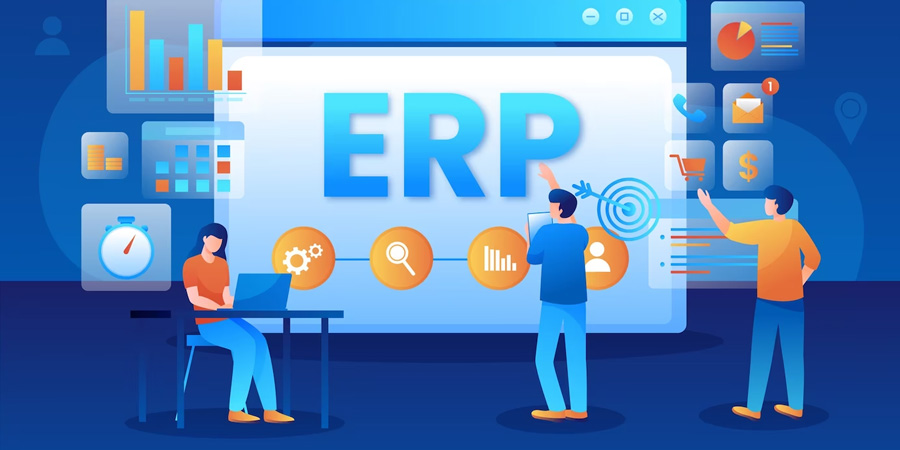 ERP solutions empower businesses across various industries by offering a range of modules designed to optimize and improve different aspects of operations, including sales, purchase, production, inventory management, and human resource management.
ERP solutions empower businesses across various industries by offering a range of modules designed to optimize and improve different aspects of operations, including sales, purchase, production, inventory management, and human resource management.
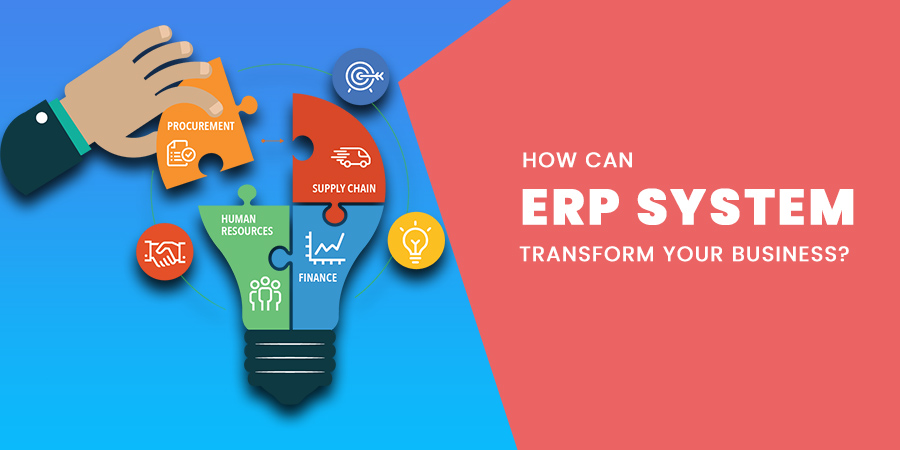 An ERP (Enterprise Resource Planning) system can make a big positive difference in your business by:
An ERP (Enterprise Resource Planning) system can make a big positive difference in your business by:
How do ERP system modules empower businesses?
 ERP solutions empower businesses across various industries by offering a range of modules designed to optimize and improve different aspects of operations, including sales, purchase, production, inventory management, and human resource management.
ERP solutions empower businesses across various industries by offering a range of modules designed to optimize and improve different aspects of operations, including sales, purchase, production, inventory management, and human resource management.
Sales module:
This ERP system module helps businesses manage their sales activities more effectively. It enables them to process customer orders from the initial inquiry to the final delivery. It also allows them to follow up on sales leads, create quotes and invoices, and oversee sales contracts. The module integrates with other modules such as production, inventory, and accounting to ensure accurate and timely information. It also gives them useful information on sales performance and customer behavior, such as sales volume, revenue, profit margin, customer satisfaction, and loyalty.Production module:
This module is essential for managing the manufacturing process. It allows businesses to plan and control production schedules, monitor work orders, allocate resources and materials, and ensure smooth production operations. The module supports different production methods, such as make-to-stock, make-to-order, and engineer-to-order. It also integrates with other modules such as inventory, quality, and accounting to ensure product quality, availability, and cost-effectiveness. It also gives them useful information on production performance, such as production capacity, utilization, efficiency, waste, and downtime.Purchase Module:
This ERP software module deals with procurement and supplier-related tasks. It enables businesses to handle purchase orders, evaluate supplier performance, check inventory levels, and simplify the procurement process. The module automates the procurement cycle, from requisition to payment. It also integrates with other modules such as inventory, production, and accounting to ensure optimal inventory management, production planning, and cost control. It also gives them useful information on purchasing performance, such as purchasing volume, spending, savings, supplier quality, and delivery time.Store Module:
This ERP system module concentrates on inventory management. It gives businesses real-time visibility into inventory levels, stock movements, and item availability. It helps them prevent stockouts, minimize inventory holding costs, and ensure timely order delivery. The module supports different inventory methods, such as FIFO (first in, first out), LIFO (last in, first out), weighted average cost, and standard cost. It also integrates with other modules such as production, sales, and accounting to ensure inventory accuracy, traceability, and valuation. It also gives them useful information on inventory performance, such as inventory turnover ratio, stock aging analysis, ABC analysis (classifying items based on their value), and EOQ (economic order quantity).HR Settings Module:
The HR settings module aims to streamline human resources management. It enables businesses to store employee data, track attendance, process payroll, and implement HR-related policies and procedures. The module automates HR processes such as recruitment, training, performance appraisal, compensation, benefits administration, and tax filing. It also integrates with other modules such as accounting, production, and sales to ensure workforce efficiency, productivity, and motivation. It also gives them useful information on HR performance, such as employee turnover rate, absenteeism rate, training effectiveness, and employee satisfaction.How can an ERP system transform your business?
 An ERP (Enterprise Resource Planning) system can make a big positive difference in your business by:
An ERP (Enterprise Resource Planning) system can make a big positive difference in your business by:
- Making Things Smoother: It helps different parts of your business work together better. This means fewer problems and less wasted time.
- Helping You Make Smart Choices: With ERP software, you can see what's happening in your business right now. That helps you make better decisions about what to do next.
- Treating Customers Right: You can learn a lot about your customers and use that information to give them better service. This makes them happy and keeps them coming back.
- Making Things Faster: If you make things, an ERP solution can help you do them faster and without mistakes. That means you can get more done and make better stuff.
- Keeping Just Enough Stuff: It helps you keep the right amount of things in stock. You won't have too much or too little, which saves money.
- Saving Money: By getting rid of things that slow you down and by doing things more efficiently, you can save money. That's always a good thing for a business.
- Being Better Than the Others: When you use an ERP solution, you can do things better than your competition. You can make things faster, have better quality, and make your customers happier.
- Working Together: Different parts of your business can talk to each other easily. This means everyone can work better together.
- Growing With You: An ERP solution can change and grow as your business does. So, whether you're a small business or a big one, it can still help you.
- Following the Rules: If there are rules you need to follow in your business (like safety rules or laws), ERP software can help you make sure you're doing the right thing.
Conclusion:
ERP software solutions are like super tools for businesses. They help with things like managing money, keeping track of stuff, and taking care of customers. As technology gets better, these tools become even more helpful. So, if you want your business to do well and keep up with the times, using ERP software solutions like Logway is the way to go.Recent Posts
Monika Narriya/0 Comments
Why are ERP solutions important in the education sector?
Monika Narriya/0 Comments
Which is the best ERP solution provider company?
Monika Narriya/0 Comments
How do we select the right ERP solution for our businesses?
Sumit Kumar/0 Comments
9 Most In-Demand Programming Languages for 2024
Sumit Kumar/0 Comments
Best Time to Post on Social Media – 2024 Guide
Sumit Kumar/0 Comments
Why You Should Consider Semantic HTML for SEO
All Categories
- Bing
- Blockchain
- Blog
- Branding
- Case Study
- Content Marketing
- Conversion Rate Optimization
- Cryptocurrency
- Digital Currency
- Digital Marketing
- Email Marketing
- ERP Solutions
- Facebook Marketing
- Google Ads
- Google Updates
- Graphic Designing
- Hire Developers
- Image SEO
- Influencer Marketing
- IT
- Local SEO
- Machine Learning
- Mobile Application Development
- Pay Per Click
- Pinterest SEO
- Podcast Hosting
- React JS
- Reddit & Quora
- Search Engine Optimization
- SEO Copywriting
- Social Media Marketing
- Software
- Software Development
- Technology
- UX and UI
- Web Designs
- Web Hosting
- Website Development
- Website Redesigning
- YouTube SEO




